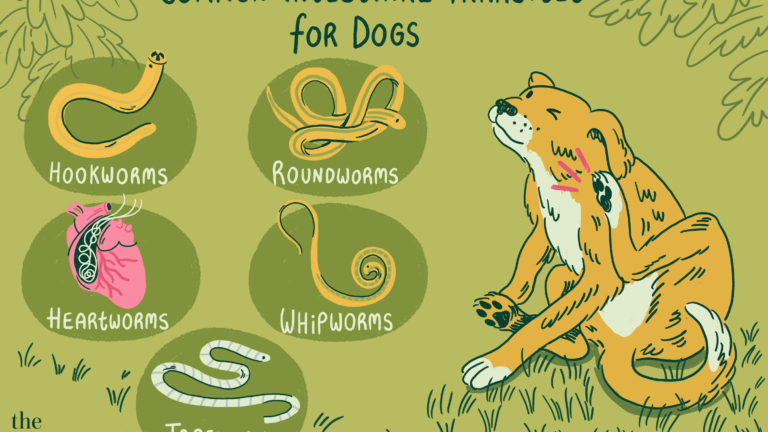Introduction
Ensuring your dog remains healthy and happy is a priority for any pet owner. One of the most common health issues that dogs face is worm infestations. These parasites can cause significant discomfort and serious health problems if left untreated. This article provides essential tips to help prevent and treat worms in your dog, ensuring their well-being and longevity.
1. Understanding the Types of Worms
Dogs can be affected by various types of worms, including roundworms, hookworms, tapeworms, and whipworms. Each type has different symptoms and treatment methods, making it crucial to identify the specific parasite affecting your dog.
Roundworms
Roundworms are one of the most common types of worms found in dogs. They can cause symptoms like vomiting, diarrhea, and a pot-bellied appearance.
Hookworms
Hookworms are smaller than roundworms but can cause significant damage. They attach to the intestinal wall and feed on your dog’s blood, leading to anemia and other health issues.
Tapeworms
Tapeworms are flat, segmented worms that can grow quite long. They are often transmitted through fleas and can cause weight loss and irritation around the anus.
Whipworms
Whipworms live in the large intestine and can cause severe irritation and inflammation, leading to chronic diarrhea and weight loss.
2. Recognizing Symptoms of Worm Infestation
Early detection of worm infestation can prevent severe health complications. Common symptoms include:
- Diarrhea (sometimes with blood)
- Weight loss
- Vomiting
- Lethargy
- Bloated abdomen
- Visible worms in feces or around the anus

3. Regular Veterinary Check-Ups
Regular visits to the veterinarian are essential for early detection and treatment of worms. Your vet can perform fecal exams to check for the presence of worm eggs and provide appropriate deworming treatments.
4. Deworming Schedule
Follow a strict deworming schedule as recommended by your veterinarian. Puppies require more frequent deworming compared to adult dogs. Typically, puppies are dewormed every two weeks until they are 12 weeks old and then monthly until they are six months old. Adult dogs should be dewormed every three to six months.
5. Flea Control
Since fleas are carriers of tapeworms, effective flea control is essential in preventing tapeworm infestations. Use veterinarian-recommended flea prevention products regularly.
6. Proper Hygiene
Maintaining good hygiene can significantly reduce the risk of worm infestations. Always clean up after your dog, especially in public areas. Wash your hands thoroughly after handling your dog or cleaning up after them.
7. Safe Environment
Ensure your dog’s living environment is clean and free from feces. Regularly disinfect their bedding and living areas to prevent the spread of parasites.
8. Balanced Diet
A well-balanced diet strengthens your dog’s immune system, making them less susceptible to infections, including worms. Consult your vet for dietary recommendations tailored to your dog’s needs.
9. Avoid Raw Meat
Feeding your dog raw or undercooked meat can increase the risk of worm infestations. Always ensure that any meat given to your dog is fully cooked.
10. Preventative Medications
There are several preventative medications available that can protect your dog from worms. Consult your vet to determine the best preventive treatment for your dog based on their health and lifestyle.
Conclusion
Preventing and treating worms in your dog is crucial for their health and happiness. By understanding the types of worms, recognizing symptoms, and following the tips provided, you can protect your furry friend from these harmful parasites. Regular veterinary check-ups, a strict deworming schedule, proper hygiene, and preventative measures are key to ensuring your dog remains worm-free.
FAQs
1. How often should I deworm my dog? Puppies should be dewormed every two weeks until 12 weeks old, then monthly until six months old. Adult dogs should be dewormed every three to six months.
2. Can humans get worms from dogs? Yes, some worms can be transmitted from dogs to humans, emphasizing the importance of proper hygiene and regular deworming.
3. What are the signs my dog has worms? Common signs include diarrhea, weight loss, vomiting, lethargy, a bloated abdomen, and visible worms in feces or around the anus.
4. Can I treat my dog’s worms at home? While over-the-counter treatments are available, it’s best to consult your veterinarian for proper diagnosis and treatment.
5. How can I prevent my dog from getting worms? Regular deworming, flea control, maintaining proper hygiene, and feeding a balanced diet can help prevent worm infestations.






